When it comes to resume advice, most job seekers ask the same questions. And chances are if you’ve found this page, you’re looking to find answers to your top resume questions too! So, without further ado, here are the top 10 resume questions answered.
Resume Advice, Top Questions:
1. Should my resume be one page or two?
This might be the number one resume question ever asked: How many pages should my resume be?
One page or two — it’s up to you. But I generally advise people newer to the job market (college graduates, for example) to stick to a one-page resume whenever possible. If you’ve been working in your desired career for five years or more, a 2-page resume will serve you well.
Just be sure to choose the length of resume based on your experience, and keep these 3 points in mind:
- One-page resumes are best suited for job seekers with one to three jobs under their belt, applicants seeking lateral employment in their same line of work., and of course recent college grads.
- You should consider a two-page resume if you have extensive experience in your field, if seeking to move vertically in your role, or if you’re pursuing a career change where a variety of experiences will highlight your strengths as they apply to the role you’re seeking.
- The most important resume advice regarding resume length is to keep it concise. By removing any unrelated extracurricular activities and job accomplishments that don’t relate to the job you are seeking, you may be able to condense a page-and-a-half resume to one page of the most concise and valuable information.
Your Top Resume Questions:
2. Should I use color on my resume?
The simple answer is no, you should not use color on your resume.
While color may seem appealing at the outset, it’s unnecessary when you consider the single purpose of a resume — to get the interview.
What sets one resume apart from another is content — in other words, your experiences, achievements, and accomplishments. Most importantly, your resume show the hiring manager how your skills and qualifications will help achieve her goals.
A second point to consider is that the color that looks good to you may be the least favorite color of one of the many people reviewing your resume. If the first person to view your resume before sending it to the hiring manager really doesn’t like green, you have one strike against you — and for reasons that have nothing at all to do with your qualifications.
Instead of choosing a resume color, spend your time making sure your keywords line up with the job description, customizing your resume for the job you’re applying for, and double checking your resume for spelling and grammar errors.
Top Resume Questions:
3. How should I format my resume?
Resume formatting shouldn’t take too much of your time. A simple layout is best.
As a former creative director who adores beautiful layouts, I wish I could tell you that using columns and pretty design matters.
But the truth is, that fancy formatting can wreak havoc with the software that scans it. And depending on the file format you use, resume formatting might not translate on a different operating system than you used to create it. This includes columns, tabs, indents, and character spacing.
It’s best to stick to tried-and-true single column layout, black type, and no more than two fonts.
Here’s a bonus tip: Don’t worry about formatting while writing your resume. Content is king. So write that unforgettable resume first, then go back and add clean and simple formatting.
4. What resume headings should I use?
Here are the five main headers used in today’s modern resume: Summary, Experience, Skills, Awards and Achievements, and Education.
Here’s a quick breakdown of what information to include in each of your resume sections:
Summary
The Summary is the introduction to your resume. Keep it to 4-5 lines if you can, and be sure it’s written using language from the job you hope to land.
Note: Objective is out. Everyone knows your objective is to get the job. Use Summary instead. (Or, you can even forego the headline altogether on your first paragraph. That can give you an extra line to showcase more important information later, and also give you a cleaner look.)
Experience
This section includes your current and past work experience, which can be organized by date (most recent first) or, in some cases, by relevance to the job you’re seeking.
You can also title this section Work Experience, or Professional Experience.
Traditionally, resumes have been chronological, with the most recent experience at the top. Today’s modern resume, however, can feature most relevant information first. So you might consider putting skills first, or listing your jobs in order of relevance first. Ask yourself this question: What is the first thing you want the recruiter to know about what you’re bringing to the job?
Skills
Here’s where you’ll want to highlight any skills you have that are relevant to the job. You can arrange these in a one- or two-column list of bullets, or you can put these in paragraph format, with bullets between entries.
This is a great section to use some of the keywords from the job description. For example, if you’ve achieved a professional designation in a particular software application your future employer is looking for, this is a great place to highlight it.
Awards and Achievements
This is where you can list any awards, specialized designations, or unique achievements that haven’t been listed under your work experience.
This section is optional, but it’s also a good way to supplement your experience if you’re newly entering the job market. Likewise, it’s a great way to set yourself apart from the other applicants by showcasing your pursuits and accomplishments either professionally or in volunteer or personal endeavors. .
Education
Unless you are a recent graduate where your degree is more relevant to your job search than your job experience, you’ll want to place your Education section at the bottom of the page, because this is where hiring managers will look for it. In fact, they might glance here first to make sure you meet their minimum qualifications before scanning the rest of your resume. Make it easy for them!
The exception is if you’re a recent college graduate without work experience. In this case, it’s fine to put Education at the top, since employers will know this is what you’ve been working on most recently.
List your most recent education first. This typically includes the name of the college you attended, your degree and major, and your graduation date. If you’re attending college currently, you can note your expected completion date (“expected May 2022”).
For the more experienced job seeker, this section might be just a one-line entry for your last college, degree, and major, leaving off the graduation date.
High school graduates typically list the high school they graduated from, and the date of graduation. However, if you list a college degree, your recruiter won’t be looking for high school information, so leave it off and use the space for professional accomplishments.
5. Should my resume include a References section?
Most hiring managers agree on this one: The answer is no. For years, people have been using valuable real estate on the resume to include the References heading, and then saying “References available upon request.” Every recruiter knows this, so there’s no point in stating the obvious.
With that being said, do take time (when your resume is done) to neatly format your own list of references, complete with names, title, and phone numbers. This way you’ll be ready to supply it to your future employer right away when it’s requested.
It’s also considered good etiquette to reach out to those references before sharing their names to let them know they might be receiving a call.
Resume Questions:
6. How do I account for gaps in my experience?
There are a couple of ways to approach a gap in employment:
- Explain in your interview
- Elaborate in a cover letter
- Include relevant experience you gained through charitable work or extracurricular activities while out of the job force.
Hilani Ellis, founder of Exceptional Admins, a boutique headhunting firm based in Colorado, shared these tips for anyone planning a career gap:
- A sense of humor goes a long way.
- Keep a notebook of things you’ve accomplished that are relevant to the job market, and include them on your resume. (Examples might include holding a leadership position in the PTA, taking additional training in a certain skill, or doing humanitarian or volunteer work).
- Consider starting your own LLC or sole proprietorship during this time, even if you only work at it part time. You’ll be able to feature this on your resume when it’s time to re-enter the workforce.
If you’ve taken off to start a family, homeschool your children, travel the world, renovate a house, or write a book, these are worthy pursuits and you want to translate these endeavors so a recruiter can see your passion, work ethic, interests, and drive to succeed in whatever you choose to pursue.
7. How many bullet points should I list for each job?
Your featured job (which may be your current job or your most relevant job) should include 8-10 bullet points. Be sure to write those bullet points as accomplishments, using achievement verbs, instead of duties. And to the best of your ability, quantify your accomplishments.
For your second job, 6-10 bullet points is appropriate.
And for all remaining jobs, list just 4-5 bullet points for each job, choosing only the achievements that most closely align with the job you are seeking.
As you work backwards to your least recent or least relevant job, you may find there are no bullet points worth mentioning (for example, flipping burgers might not have anything to do with managing an international sales force), so consider leaving those jobs off your resume entirely.
Top Resume Questions:
8. How important are keywords?
Short answer: VERY! In fact, keywords are one of the most important parts of today’s modern resume.
What are resume keywords anyway, and why are they important?
If it’s been more than a decade since you updated your resume, the concept of resume keywords may be new to you. Keywords are words that are considered the most important descriptors of a job.
Many if not most employers use Applicant Tracking Software, or ATS, to compare resumes to job descriptions. When resume keywords don’t line up with designated keywords in a job description, that resume will be placed in a low-match category and, depending on the company, may or may not actually be viewed by a person.
Three tips to making sure you are using the right keywords:
- Get your keywords from the job description itself.
- Use keywords for the position you want, not the one you have now.
- Look up similar job descriptions at other companies to see which keywords are common for that particular position.
9. Should I customize my resume for each job?
In almost every case, yes. By matching your Summary and Experience bullet points to a company’s posted job description, you’ll position your resume to fly through the ATS screening phase. You’ll also be showing the hiring manager that you’ve done your homework — something that will help you stand out from the other candidates for the job.
Another nice touch is to name your resume in a way that incorporates the company you are applying to. Not only does this let the hiring manager know your resume was created specifically for them, but it will help you stay organized in your job search as well. Here’s an example of how you might name your resume before submitting: LastName_FirstName_Month_Year_CompanyWhereApplying.pdf
10. Do I need to include a cover letter?
Most recruiters will tell you cover letters are a thing of the past. Your time is better spent crafting a resume that stands apart from the rest. Make sure it’s clean, professional, and without error. Make sure every word is on point and focused on how you’re qualified for the job you’re seeking.
There are, of course, a few exceptions here. If the job description requests a cover letter, by all means include one. (More on cover letters in a future post.) If you have gaps in your resume, or you know certain information on your resume needs explanation otherwise you’ll be passed over, a cover letter might be passed over, you might benefit from a cover letter.
If you do write a cover letter, be sure to find the name of the person you want to read it, rather then writing “to whom it may concern.” (Be sure to spell names correctly when you use them!)
And finally, if you do write a cover letter, don’t just recap your entire resume. Focus on just one or two main points, then use the rest of the letter to catch the hiring manager’s attention and make them want to read your resume.
More resume questions?
If this article answered your top resume questions, be sure to let me know! Or, if you have additional questions not answered here, send me an email and I’ll answer them in a future post!
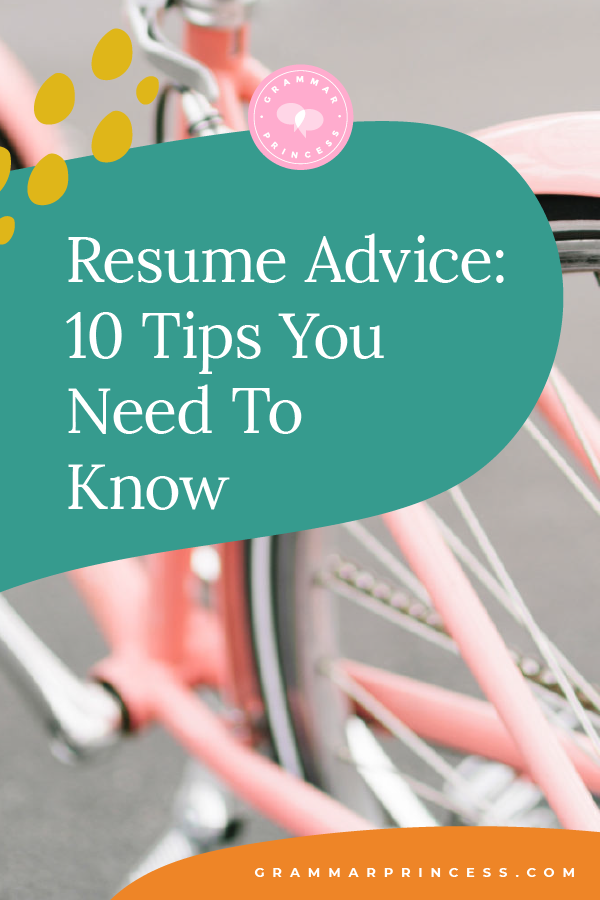
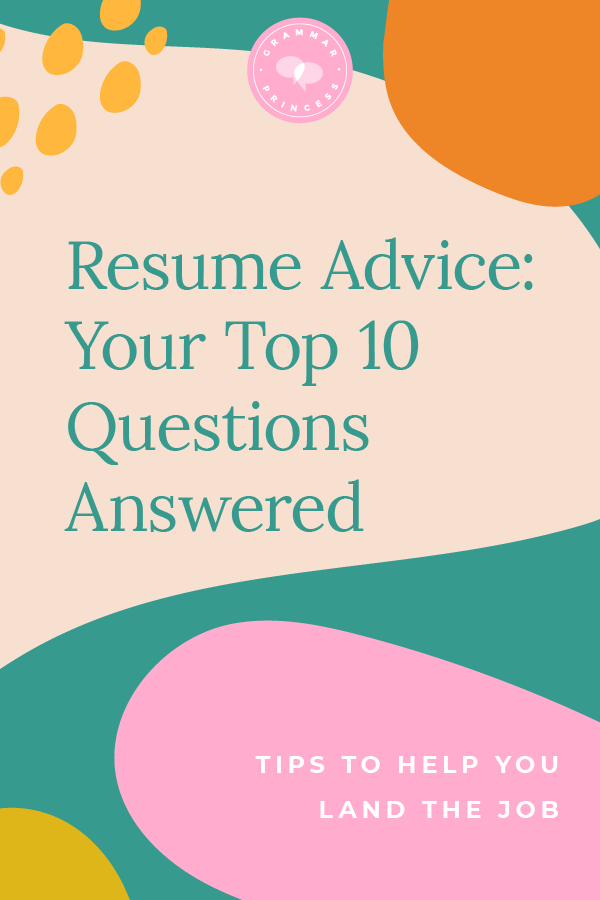
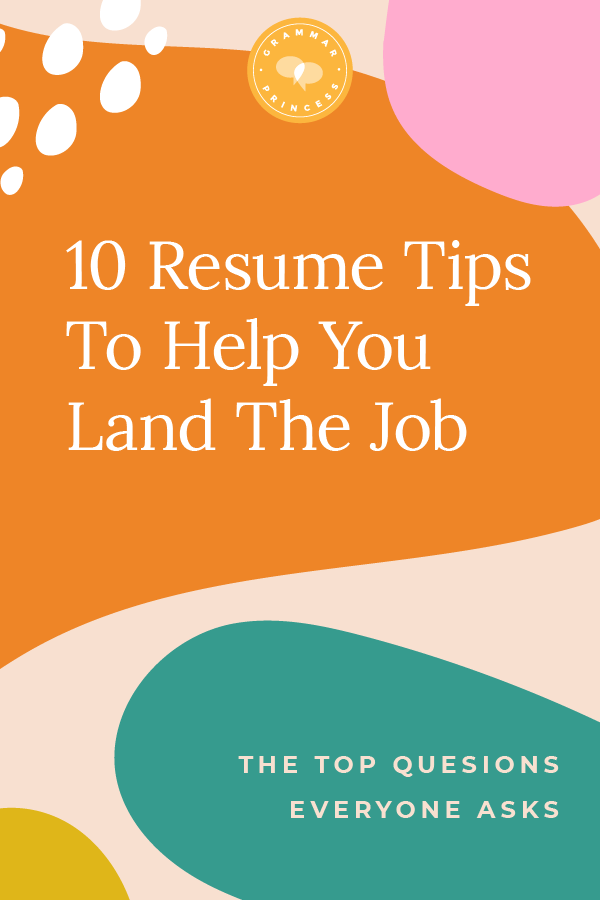
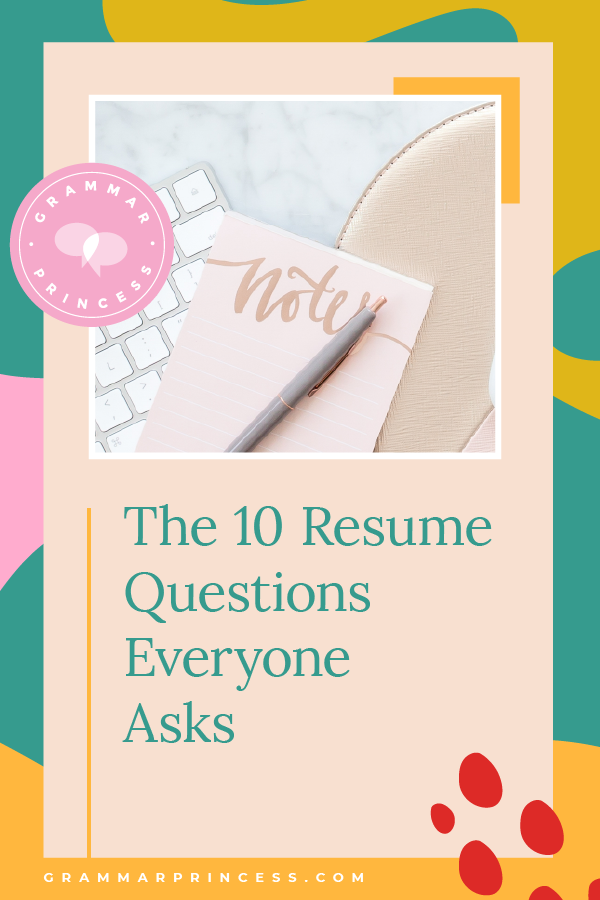
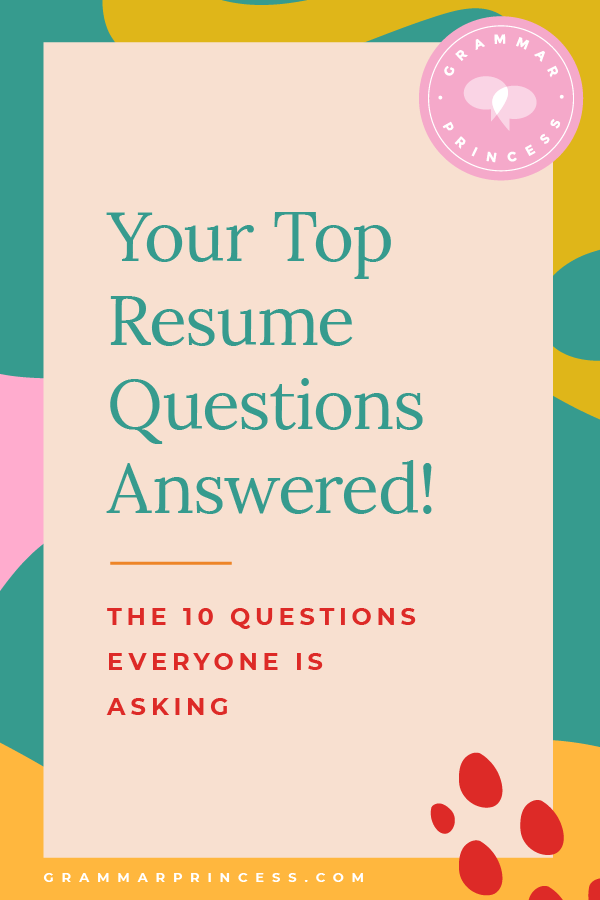
Loved this post? Share it on: